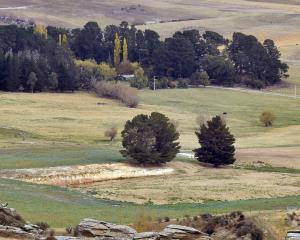

Snail find near Akatore
Few records have been made of land-shells in New Zealand in Recent rock — that is, rock of the present geological era, which has followed the Tertiary Era. Mr H.J. Finlay, Pine Hill terrace, Dunedin, when examining the shore-line near the month of the Akatoa Creek, which opens on to the coast some six miles south of the Taieri River, discovered a small beach deposit very rich in recent land-shells. It is the first record in New Zealand of a land fauna, as distinct from a marine fauna, in a sea-beach deposit. On the highest margin of the strand near Akatoa Creek, Mr Finlay found no fewer than 10 species of land-shells, including a new one, a tiny, handsome coiled shell, which he and Mr R. Murdoch, who worked out the discovery with him, have dedicated to the late Mr H. Suter, an ardent worker amongst New Zealand’s fossil and living shells. Most of the species in the deposit are in great profusion. The freshness of their colours gave an impression that they had not been deposited for more than a few months. The bed in which they occur has been formed for more than 13 years, and its extent has not changed noticeably in that time. Messrs Finlay and Murdoch believe that the shells were carried down Akatoa Creek, which drains coastal hills. Almost all New Zealand’s land-shells, they point out, shelter under fallen trees and amongst leaves and decaying debris.
Trainees’ ring-in thwarted
Considerable importance attaches to the decision of the Court of Appeal bearing upon the charges of forgery preferred against two students, till lately attending the Dunedin Training College, in connection with the teachers’ examinations hold in August last. The two young men concerned adopted a method of procedure corresponding to that which in relation to horseracing is popularly known as "ringing-in." They arranged that in a subject in which one of them was weak the other should sit for examination in his stead, signing his companion’s name to the necessary documents. The scheme failed because the impersonation was discovered, and the Board of Education, whose officers the students had thought to outwit, saw to it that legal proceedings were instituted. The moral of such legal proceedings, fortunately of an unusual kind, needs little pointing. The educational authority no doubt carried the matter to the courts with reluctance. But one of its duties is to protect the comprehensive interests of education. A high ethical standard is naturally expected in aspirants for the teaching profession. — editorial — ODT, 1.4.1924
Compiled by Peter Dowden












